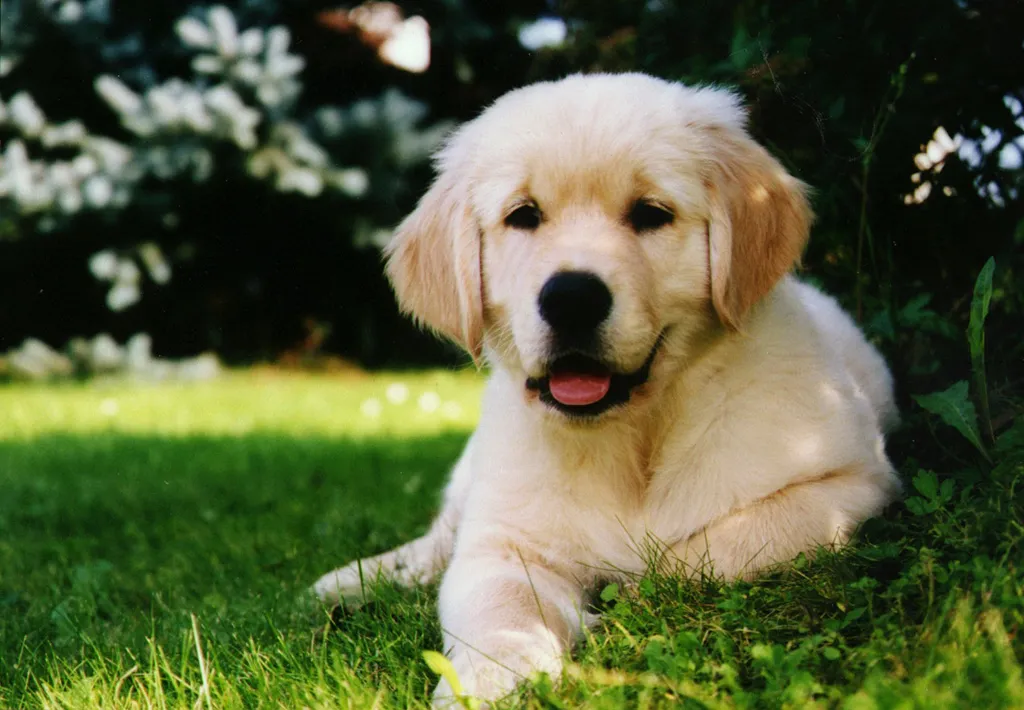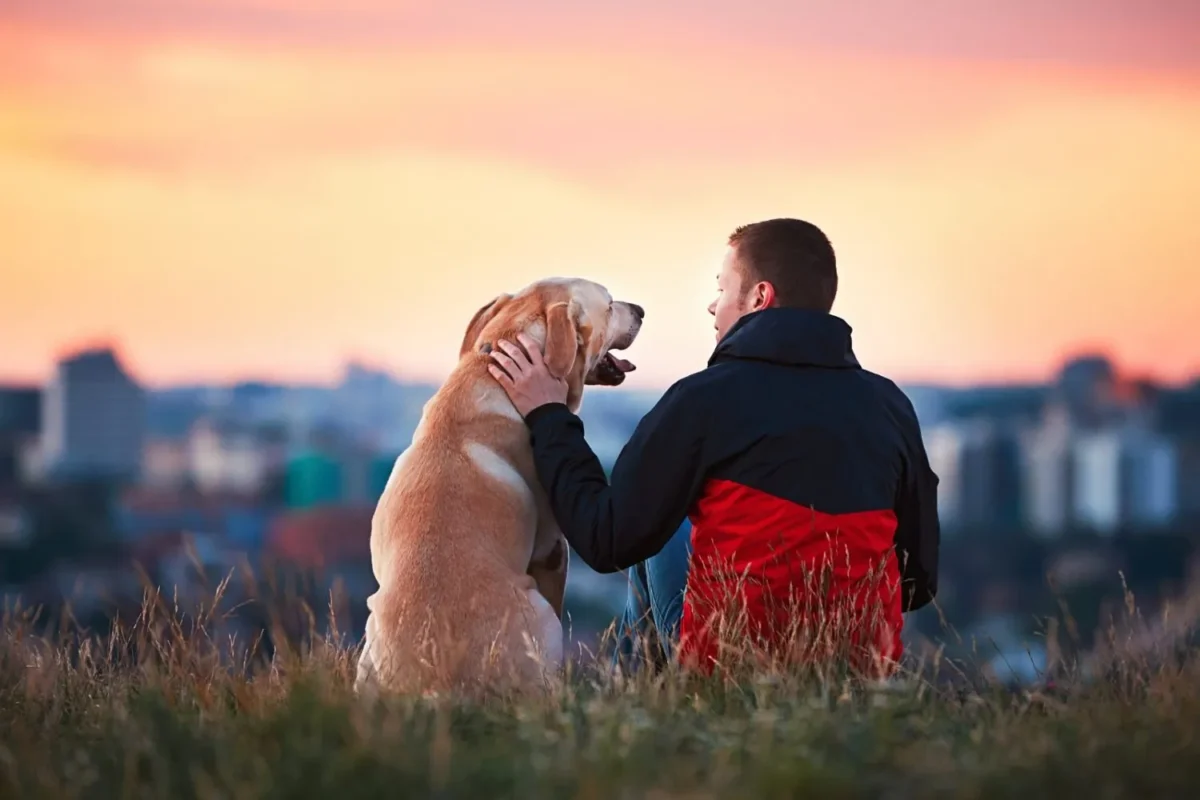Are you wondering when your energetic golden retriever will finally calm down? It’s a question that many owners of this beloved breed ask themselves. While golden retrievers are known for their friendly and outgoing nature, they can also be quite high-energy, especially during their puppy and adolescent stages. In this article, we’ll explore how long it typically takes for golden retrievers to calm down and what factors can influence their energy levels. So if you’re eager to find out when you can expect a more relaxed and mellow furry friend, keep reading!
If you’re a proud owner of a golden retriever, you may have noticed that their seemingly boundless energy can be both endearing and exhausting. While it’s true that every dog is different, there are some general guidelines when it comes to how long it takes for golden retrievers to calm down. In this article, we’ll break down the different stages of a golden retriever’s life and discuss when you can expect them to become more relaxed and less hyperactive. So if you’re curious about the timeline for your golden retriever’s energy levels, keep reading!
Factors that Influence the Calming Down of Golden Retrievers
When it comes to golden retrievers, their energy levels can be quite impressive! As a dog lover who has owned both golden retrievers and Goldendoodles, and with experience working in animal shelters and veterinary offices, I understand the importance of knowing when your furry friend will start to calm down. Let’s dive into some key factors that can influence the calming down process of golden retrievers:
1. Age: Age plays a significant role in determining when golden retrievers will calm down. During the puppy and adolescent stages, they tend to be full of energy and excitement. But remember, every dog is unique, so while some may start to mellow out around 1-2 years old, others might take a bit longer. Patience is key!
2. Exercise: Adequate exercise is crucial for the overall well-being of your golden retriever. Regular exercise not only helps to tire them out physically, but it also provides mental stimulation, which can contribute to a calmer demeanor. Aim for at least 30-60 minutes of exercise every day, but consult your veterinarian for specific exercise recommendations based on your dog’s age and health condition.
3. Training: Proper training is essential for golden retrievers to learn good behavior and self-control. By teaching them basic obedience commands and rewarding positive behavior, you can help them develop self-discipline and become more well-mannered. Consistency and positive reinforcement are key elements in training your golden retriever to calm down.
4. Socialization: Golden retrievers are sociable and love being around people and other animals. Exposing your furry friend to different environments, people, and animals from an early age will help them develop good social skills. Well-socialized dogs tend to be more confident and relaxed in various situations.
5. Genetics: Lastly, genetics can also influence the energy levels and temperament of golden retrievers. Some dogs are naturally more energetic and hyperactive, while others may be more laid-back. Breeders who prioritize temperament and breeding with calm and mellow dogs may produce offsprings that exhibit these traits.
Remember that each golden retriever is unique, and the time it takes for them to calm down will vary. While some may start to mellow out earlier, others may take a bit longer. With patience, consistency in training, proper exercise, and socialization, you’ll help create a balanced and well-behaved companion.
Developmental Stages of Golden Retrievers and Their Energy Levels
As a dog lover who has owned both golden retrievers and Goldendoodles, I understand the curiosity and desire to learn more about these amazing breeds. Working at animal shelters and veterinary offices has given me valuable insights into the developmental stages of golden retrievers and how their energy levels change as they mature. So, let’s delve into the different stages and what you can expect:
Puppy Stage (0-6 months): Ah, the adorable and energetic puppy stage! During this time, your golden retriever or Goldendoodle will be a bundle of endless energy. They’ll be curious, playful, and full of mischievousness. It’s important to provide them with plenty of mental stimulation, exercise, and socialization to help channel their energy in a positive way.
Adolescent Stage (6-18 months): Ah, the teenage years! This stage is marked by a combination of boundless energy and testing boundaries. Your pup may have bursts of hyperactivity followed by moments of laziness. Be patient, consistent, and continue to provide mental and physical exercise. Training sessions during this stage are crucial for teaching them important manners and behaviors.
Young Adult Stage (1-3 years): By now, your golden retriever or Goldendoodle is starting to mature. Their energy levels typically start to decrease, but they still have plenty of enthusiasm. They may still have bursts of playful energy but will also enjoy more calm and relaxed moments. Continued exercise and mental stimulation are important, but you may notice a more settled and balanced behavior.
Adult Stage (3-5 years): Ah, the prime of their lives! During this stage, golden retrievers and Goldendoodles tend to reach their peak physical and mental maturity. While they may still have moments of playful energy, they tend to be more settled and relaxed overall. Regular exercise and mental stimulation are still important to keep them happy and healthy.

« Shocking Truth Revealed: Is Your Golden Retriever Dying? Uncover Expert Tips for Ensuring Their Longevity
Shocking Truth: Is Feeding Cheese to Golden Retrievers a Recipe for Disaster? »
Senior Stage (6 years and older): As your golden retriever or Goldendoodle enters their senior years, they will naturally start to slow down. They may become less energetic and prefer shorter and less intense exercise sessions. However, it’s crucial to continue providing mental stimulation and regular check-ups with your veterinarian to ensure their well-being.
Remember, every golden retriever or Goldendoodle is unique, and their developmental timeline may vary. The key is to provide them with love,
Exercise and Physical Activity Requirements for Golden Retrievers
As a dog lover and owner of a golden retriever and a Goldendoodle, you understand the importance of keeping your furry friends active and healthy. Golden retrievers, in particular, are known for their energetic nature and love for physical activities. In this section, we will explore the exercise and physical activity requirements specific to golden retrievers, helping you ensure that your canine companion remains happy and well-balanced.
1. Daily Exercise
Golden retrievers require regular exercise to expend their energy and maintain good physical condition. Aim for at least 60 to 90 minutes of exercise every day. Engage in activities such as brisk walks, jogging, playing fetch, or hiking to keep them mentally stimulated and physically fit.
2. Mental Stimulation
In addition to physical exercise, golden retrievers also need mental stimulation to stay content. Engage them in mentally stimulating activities such as puzzle toys, obedience training, or interactive play sessions. Incorporate mental challenges to help keep their minds sharp and prevent boredom.
3. Variety of Activities
Varying your golden retriever’s activities will help prevent them from getting bored or restless. Consider different forms of exercise such as swimming, agility training, or playing with other dogs at the park. Provide them with a diverse range of activities to cater to their innate needs and interests.
4. Supervised Playtime
Golden retrievers are social animals and thrive on human companionship. Engage in supervised playtime with them to foster a strong bond and provide them with much-needed interaction. Use this time to reinforce positive behaviors and ensure that they feel loved and included in your daily routine.
5. Gradual Increase in Exercise Intensity
It’s important to note that golden retrievers should gradually build up their exercise intensity as they age. Puppies should engage in shorter bursts of play, while adult dogs can handle longer walks or more intense activities. Always consider their age, fitness level, and consult with your veterinarian if you have any concerns.
By understanding the exercise and physical activity requirements for golden retrievers, you can provide them with the appropriate outlets for their energy and ensure their overall well-being. Remember, a happy and well-exercised golden retriever is more likely to exhibit good behavior and become a cherished member of your family.
Training Techniques to Help Golden Retrievers Calm Down
As a dog lover and owner of both a golden retriever and a Goldendoodle, I understand the need for training techniques to help your furry friend calm down. Having worked at animal shelters and veterinary offices, I have seen firsthand the difference that proper training can make in shaping a well-behaved and calm dog. In this section, I’ll share some effective techniques that you can use with your golden retriever or Goldendoodle to promote a calmer and more balanced behavior.

Establish Consistent Routines: Dogs thrive on routine, so establishing a consistent daily schedule can help create a sense of stability and calmness for your pet. Make sure to set regular times for meals, walks, training sessions, and playtime. This will help your golden retriever or Goldendoodle know what to expect and can reduce any anxiety or hyperactivity.
Use Positive Reinforcement: Positive reinforcement is a powerful tool for training dogs and can be particularly effective in helping your golden retriever or Goldendoodle calm down. Reward good behavior, such as sitting calmly or lying down, with treats, praise, and petting. This positive association will encourage your dog to repeat the calm behavior in the future.
Provide Mental Stimulation: Mental stimulation is just as important as physical exercise for golden retrievers and Goldendoodles. Engage your dog’s mind by offering puzzle toys, interactive games, and training sessions that challenge their cognitive abilities. Mental stimulation can help tire your dog out and promote a more relaxed state.
Teach Relaxation Exercises: Teaching your golden retriever or Goldendoodle relaxation exercises, such as “settling” or “down-stay,” can be incredibly helpful in promoting a calm demeanor. Start by teaching your dog basic obedience commands and gradually progress to longer durations of relaxation. Reward your dog for remaining calm and reinforce the behavior with praise and treats.
Seek Professional Help if Needed: If despite your best efforts, your golden retriever or Goldendoodle continues to struggle with excessive energy or hyperactivity, it may be beneficial to seek the help of a professional dog trainer or behaviorist. They can provide specific guidance tailored to your dog’s needs and help you develop a personalized training plan.

By implementing these training techniques, you can help your golden retriever or Goldendoodle develop a calmer and more balanced temperament. Remember, consistency, positive reinforcement, mental stimulation, and relaxation exercises are key components in achieving
Managing Anxiety and Stress in Golden Retrievers
If you’re a loving owner of a golden retriever or a Goldendoodle, you may have noticed that sometimes your furry companion can experience anxiety and stress. Just like humans, dogs can also struggle with feeling overwhelmed or uneasy.
As someone who has worked at animal shelters and veterinary offices, I understand the importance of managing anxiety and stress in our beloved pets. Here are a few tips and techniques that can help your golden retriever or Goldendoodle find their inner calm:
- Establish Consistent Routines: Dogs thrive on consistency and structure. By establishing a regular schedule for feeding, exercise, and playtime, you can create a sense of security and predictability for your furry friend. Stick to the routine as much as possible to help your golden retriever feel safe and relaxed.
- Use Positive Reinforcement: Rewarding good behavior can go a long way in reducing anxiety and stress. When your golden retriever or Goldendoodle displays calm behavior, be sure to praise and reward them with treats, toys, or a favorite activity. This positive reinforcement reinforces their calmness and helps them associate relaxation with positive experiences.
- Provide Mental Stimulation: Mental stimulation is essential for keeping your furry friend engaged and occupied. Interactive toys, puzzle feeders, and obedience training are great ways to challenge their minds and distract them from anxiety-inducing stimuli. Keeping their brains busy can help redirect their focus and reduce stress.
- Teach Relaxation Exercises: Just like humans practice deep breathing or meditation to relax, dogs can benefit from relaxation exercises as well. Try teaching your golden retriever some basic relaxation techniques, such as “down-stays” or “settle.” These exercises can help them learn to calm down on command and provide a sense of control in stressful situations.
Remember, every dog is unique, and there is no one-size-fits-all solution for managing anxiety and stress. If you find that your golden retriever’s anxiety persists or worsens despite your efforts, it may be beneficial to seek professional help from a veterinarian or animal behaviorist. These experts can provide additional guidance and support tailored to your dog’s specific needs.
By implementing these techniques and providing a calm and loving environment, you can help your golden retriever or Goldendoodle find their inner peace and navigate the world with confidence and contentment.

Conclusion
By following the guidelines and techniques outlined in this article, you can help your golden retriever calm down and become a well-balanced and happy companion. Regular exercise and mental stimulation are key to keeping them physically and mentally healthy. Remember to provide a variety of activities to keep them engaged and entertained.
Supervised playtime and gradually increasing exercise intensity as they age will help them burn off excess energy and promote relaxation. Training techniques such as establishing consistent routines, using positive reinforcement, providing mental stimulation, teaching relaxation exercises, and seeking professional help if needed, can also be effective in calming down your golden retriever.
Managing anxiety and stress is important for the overall well-being of your golden retriever. Establishing consistent routines, using positive reinforcement, providing mental stimulation, teaching relaxation exercises, and seeking professional help if needed are all ways to help your golden retriever cope with anxiety and stress.
By implementing these strategies and techniques, you can create a harmonious and calm environment for your golden retriever, fostering a strong bond and ensuring their overall well-being. Remember, every dog is unique, so be patient and understanding as you work with your golden retriever to achieve a calm and balanced state.







